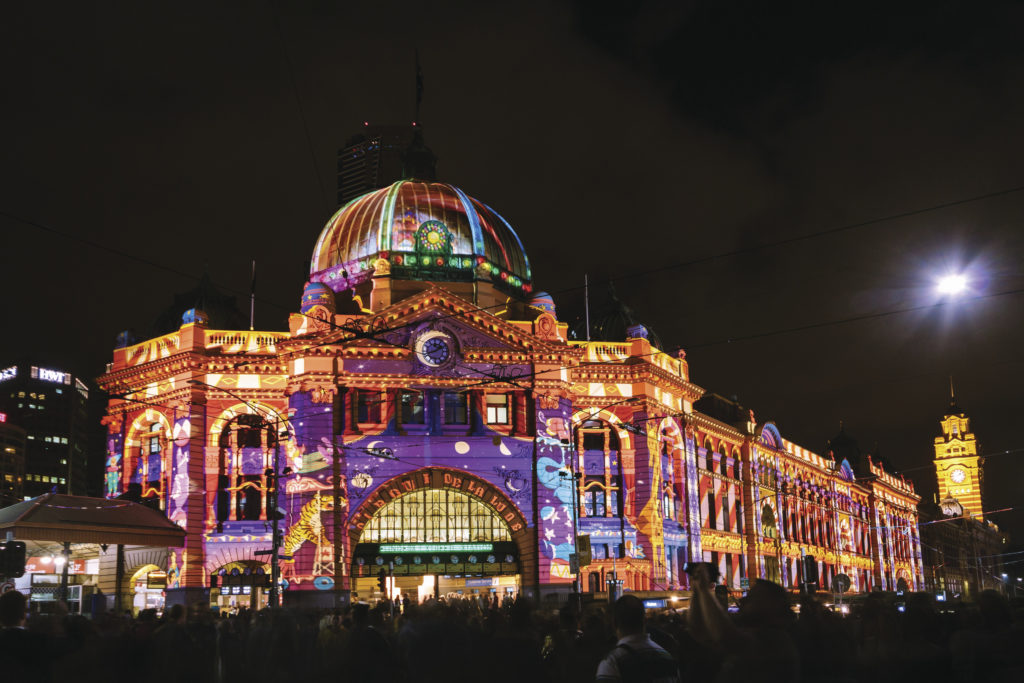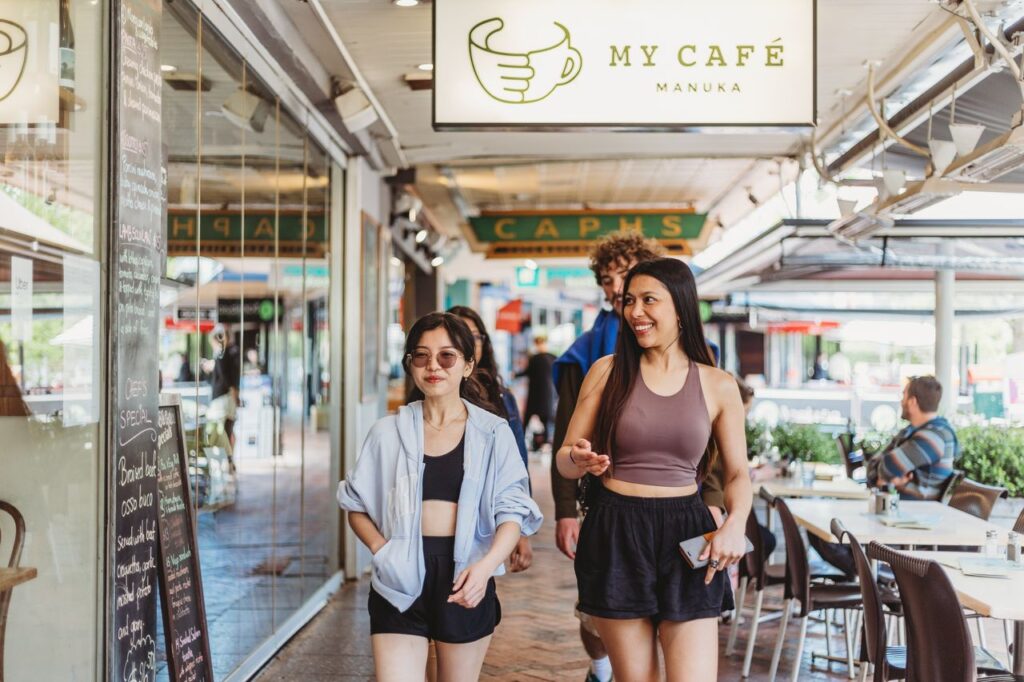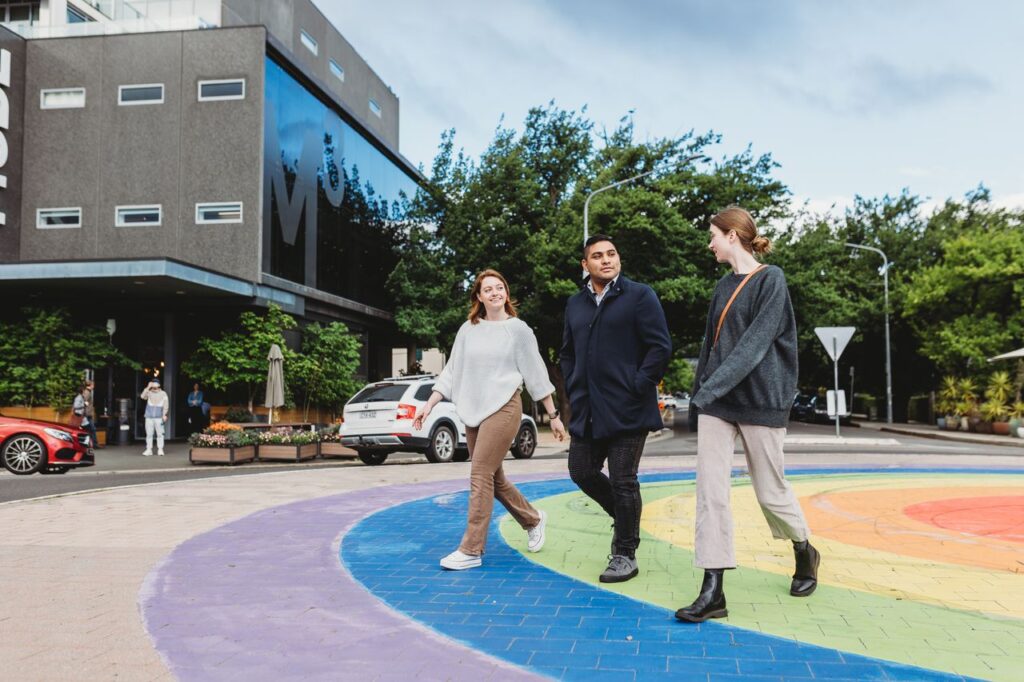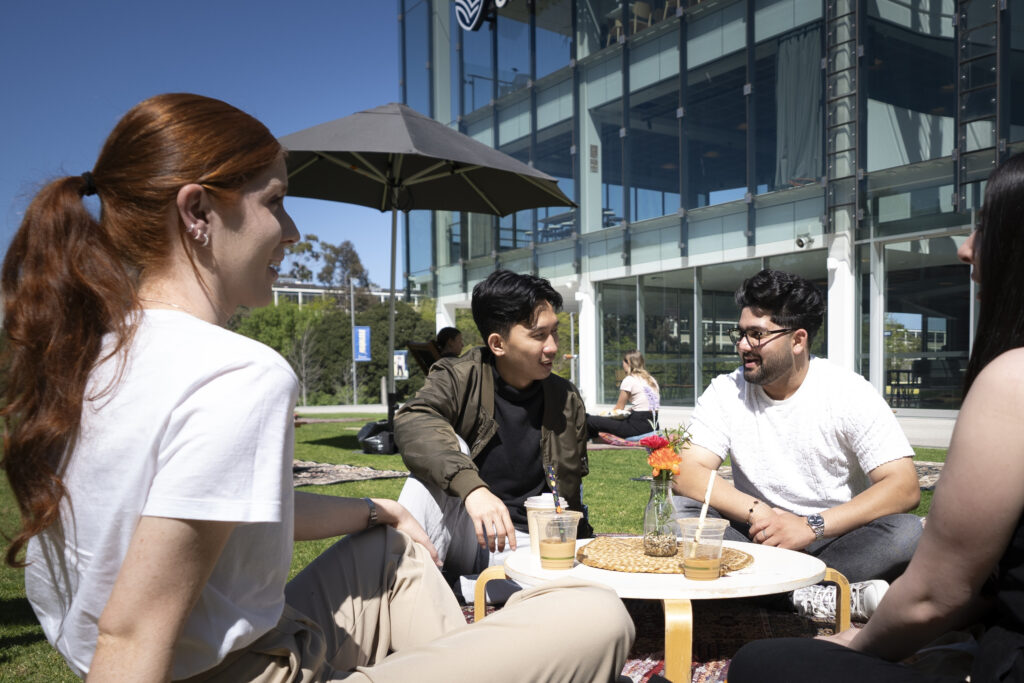Melbourne has been labelled the world’s third most liveable city in 2023! It’s a bustling, cosmopolitan city in the southeast of Australia that’s home to fantastic restaurants, bars and cafes, top-class educational institutions, and a diverse population. Thanks to its many wonderful qualities, Melbourne is now a hugely popular destination for international students from all over the world.
Whether you want to live directly in the central part of the city or in one of Melbourne’s many vibrant and multicultural suburbs, this guide will give you an idea of how much you’ll be spending if you choose to study and live in Melbourne.
Accommodation
Melbourne is on the more expensive end among Australia’s capital cities, but you will be rewarded with excitement and fun things to do around every corner. And, like any other location, it is going to be more expensive to live near the CBD than it is to live further out in the suburbs.
Private rentals
According to CoreLogic, the median rent in Melbourne (as of October 2023) is $553 per week. However, your weekly rent could very well fall above or below that figure depending on a variety of factors, including location. Let’s take a look at the rent estimates in Melbourne’s inner city vs the suburbs.
Inner city
In the inner city, you can expect to spend $243 per week on average for a room in a share house (living with professionals or other students), $390 per week for a serviced apartment, or $675 per week for a one-bedroom unit all to yourself. Additionally, there are homestay options where you can live with local families. This usually costs around $335 per week.
Suburbs
In the suburbs around central Melbourne, a one-bedroom unit is even cheaper at an average of $450 per week, while a room in a share house will cost around $225 per week depending on how many bedrooms the house or apartment contains.
Student accommodation
Managed student accommodation is a convenient option if you want utilities and extra features included in your weekly rent. As an example, at Journal Student Living in the central suburb of Carlton, the weekly price starts at $369 for a twin-share room. This includes internet, utilities, and access to various facilities including a library, gym and cinema.
Homestays
Homestays are another go-to accommodation option for international students in Melbourne. In this style of housing, you’ll live with a local family in their home.
Per the Australian Homestay Network (AHN), homestays in Melbourne can cost anywhere from $260-$415 per week.
Which one to pick?
It’s important to think about your priorities when weighing up these options. Living further away from the city is cheaper and generally offers more living space. However, it can potentially mean more money being spent on public transport and taxi or Uber services, as well as getting home later from school. Living near the city can be a little more expensive, but you’ll be closer to Melbourne’s incredible array of restaurants, nightlife, and major cultural institutions. Living in student accommodation on or near campus can be hugely convenient, as all costs are included in the weekly price and you’ll have a minimal commute to class.
Public Transport
While many of Melbourne’s university campuses – such as RMIT, the University of Melbourne and Victoria University – are close to the city centre, others like Monash University and La Trobe University are further out. However, no matter where your campus is located, it will no doubt be easily accessible by train, bus or the city’s excellent tram network.
You must purchase a myki card for all travel purposes in Melbourne and surrounds. The card works on trains, trams, light rail, and buses (including regional journeys outside of the city to places like Geelong, Bendigo and Traralgon). myki cards can be purchased at staffed train stations and a variety of convenience stores throughout the city. They cannot be purchased on trams.
Concession rate
In general, international students are not entitled to a concession rate on myki cards (except on the annual pass – see below), so the full fare will be paid. Fares using the myki card depend on where you’re travelling to and how often, but students generally spend around $22 per week. You can work out your expected weekly cost using this calculator.
Eligible international students can also get a 50 per cent discount on an annual myki pass using the International Student Travel Pass. This option saves you a lot of money if you will be travelling at least 90 days of the year (if you’re travelling less than this, a normal myki will be cheaper). Certain study conditions need to be met in order to apply for an International Student Travel Pass, so make sure to check out the Public Transport Victoria website.
Food
Eating in
If you choose to cook and eat at home, you can generally expect to spend around $3 per breakfast, $5 per lunch, and $11 per dinner. Of course, this depends on your grocery preferences.
Eating out
Melbourne is famous for its food and drink culture, with locals and tourists alike flocking to the city’s laneways, cute cafes and world-renowned restaurants. If you want to take full advantage of Melbourne’s incredible food and drink offerings, it’s a smart move to set aside some spending money each week.
On average, a breakfast at a cafe in Melbourne is going to cost you $20, but make sure to budget a bit extra if you’d like to add a coffee – Melbourne is known as the coffee capital of Australia, so you might need to work this into your daily budget. For lunch, you will likely have to spend around $16-20. Dinner might be slightly more expensive at around $25 per meal.
It’s important to remember that in Australia, waiters and servers get paid a liveable minimum wage. This means that your sandwich or salad may cost a little bit more than you expect, but it also means the staff are being paid fairly for their time. Unlike some other places you may have visited, such as the United States, Australia does not have a tipping culture. Places may ask if you would like to tip, but it’s not necessary.
Entertainment
Nightlife
Depending on your circumstances, it’s always worth planning ahead for a night out. You don’t want to accidentally splurge your weekly savings just by walking into an expensive venue! Some bars that feature music, burlesque or other live entertainment will likely enforce a cover charge of between $10-$20, but you can usually avoid this charge if you go early enough. While there, you can expect a glass of wine, beer or cider to cost approximately $10-$15 each. Spirits might be anywhere between $12-$25 depending on the venue and whether you have a desire for cocktails.
Shows
Concerts and live music can be more expensive in Australia. Performers have to spend more to travel here, and the costs associated with paying bar and security staff add up. In Melbourne, $50 or more per ticket is an expected figure to pay for live music or sporting matches. For a larger act at a stadium or arena, over $100 per ticket is typical. Other events like dance or theatre performances will usually cost $50 or more. Always make sure you investigate the weekly city guides, as there are plenty of regular free events taking place around Melbourne.
Movies
A movie at any of the city’s cinemas will likely cost around $21, which may sound like a lot compared to Netflix at home. But, you don’t get the big screen experience that way! Make sure you take advantage of any cinema membership programs that will get you discounted tickets and free popcorn and drinks. Event Cinemas offer student members $10 tickets from Monday to Thursday. Student accommodation providers sometimes even have cinemas of their own, with free screenings for residents.
Fitness
If you prefer to spend your downtime at the gym, a membership at one of the more common gym franchises like Goodlife, Fitness First or Anytime Fitness, will cost around $16-20 per week. Make sure to ask about any student discounts on memberships or classes. If you opt to live in student accommodation, access to a designated fitness space is usually included in the weekly price.
For more information on the cost of living in Melbourne, make sure to check out our Cost of Living Calculator.
Images courtesy of Visit Victoria.





